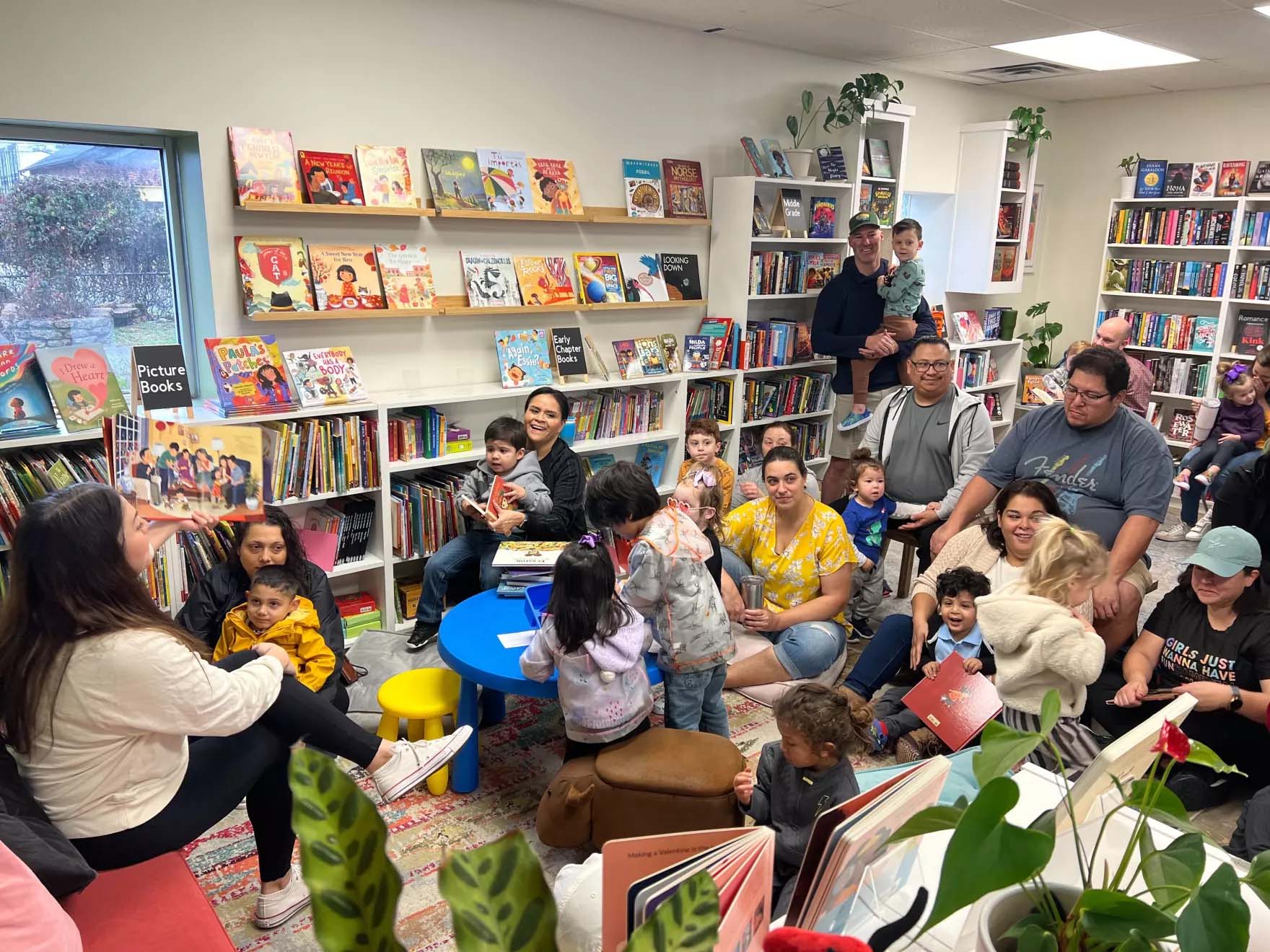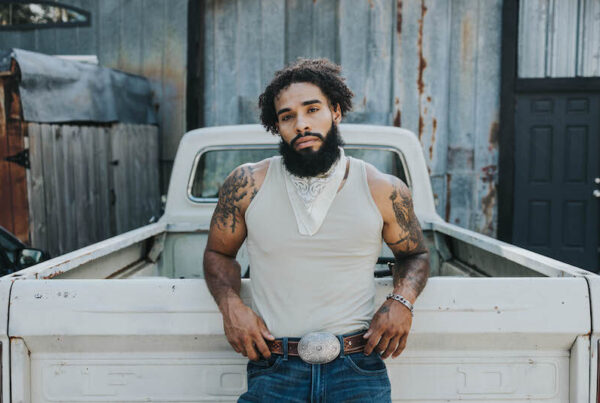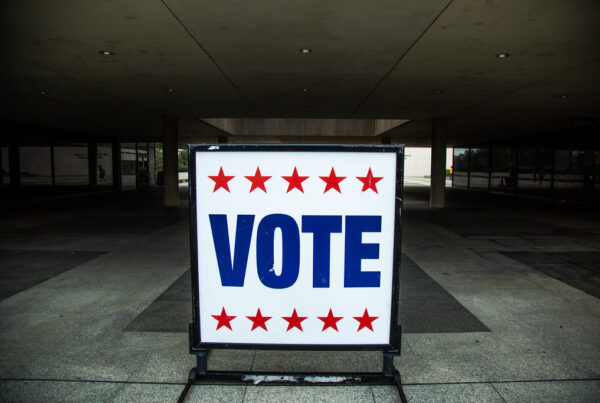From KERA News:
South Dallas is home to some of the city’s unique attractions: Fair Park, Texas Theater, and the Texas Discovery Garden. But what the area lacks are bookstores.
Anything south of Downtown Dallas is considered a book desert — meaning most families have less than 10 books in their homes and aren’t practicing literacy skills with their kids.
One bookstore in Bishop Arts is trying to change that.
Claudia Vega is the owner of Whose Books. She said she’s always had a love for reading that trickled down to her family.
“If we wanted to buy books to have our own libraries, we had to travel north across the Trinity or to the suburbs,” Vega said. “Because there was not consistent book access for book ownership in the forms that make bookstores here in the neighborhood.”
After spending 20 years in education, she decided to cash in her retirement to open her dream bookstore that reflected the community she lives in and educate people about book literacy.
“Our goal was like, well, let’s create book access and book ownership and let’s create this inviting place that welcomes everyone, right? Regardless of age, regardless of income, of background, of language,” Vega said. “We want people to know that this place is for you.”
Hence the name: Whose Books.
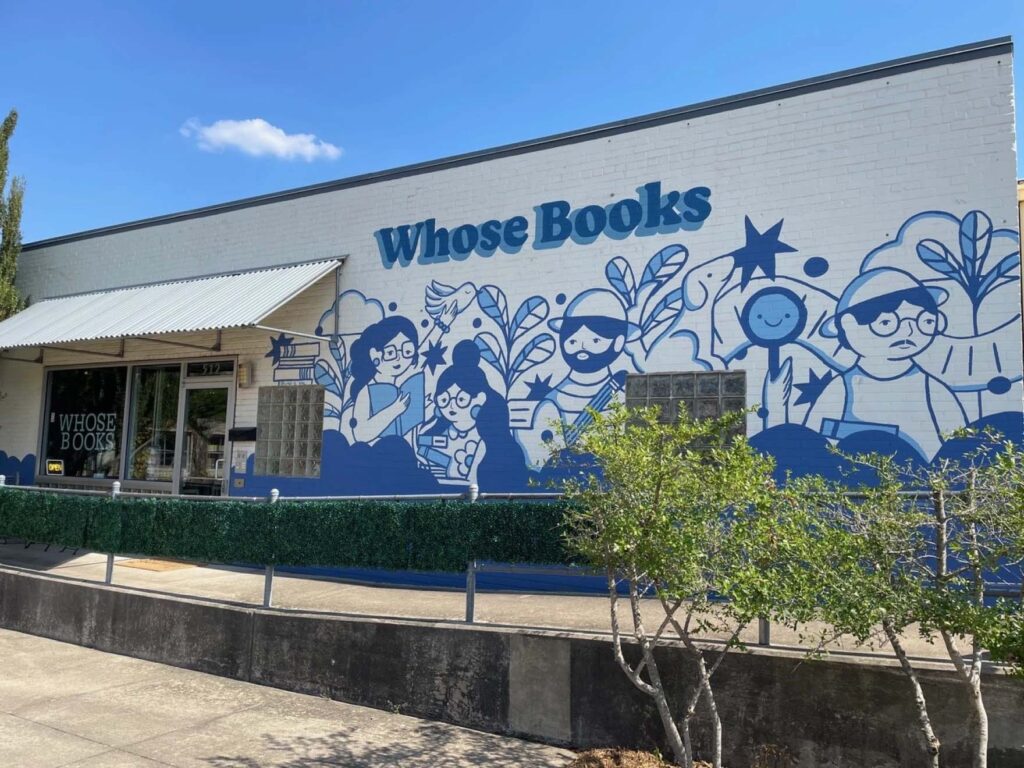
Whose Books opened in 2021 to encourage book ownership.
Claudia Vega / Whose Books
Since it opened in 2021, the store has attracted avid readers — as well as those who had little experience, Vega said.
“Some people would ask if they had to pay to enter,” she said. “Some people asked if they had to pay to browse, where to find the price on the book, all kind of little signals of they’ve never been exposed to this before.”
So, two years after opening the bookstore, Vega launched a nonprofit called ARCO — Activating Reading Communities Organization.
“What if the nonprofit allows us to open up book access in a meaningful way?” Vega said.
Getting books into homes
There are a lot of reasons some people haven’t been exposed to reading: limited income, intimidation, disabilities.
“Perhaps they didn’t finish school and never got a chance to really become fully literate,” Vega said. “When their children go to school, if they struggled with either vocabulary or language or a reading disability, then reading can become a point of frustration.”
Vega recalls one man who came into the store — he had been deemed a “bad reader” as a child because of undiagnosed disabilities that caused him to stop reading, and he then projected that on his own kids.
“This entire time he had developed this idea that he was not a good reader, that reading was not for him,” Vega said. “He detested books and then he was sharing that with his children indirectly, and he didn’t realize it.”
Data from the National Center for Education Statistics shows Texas ranks in the bottom four of states for adult literacy.
Vega said the classroom doesn’t have to be where kids are introduced to books. Reading culture should start in the home — research shows that early exposure to books in a household is essential for building routines and practices that enhance lifelong cognitive skills.
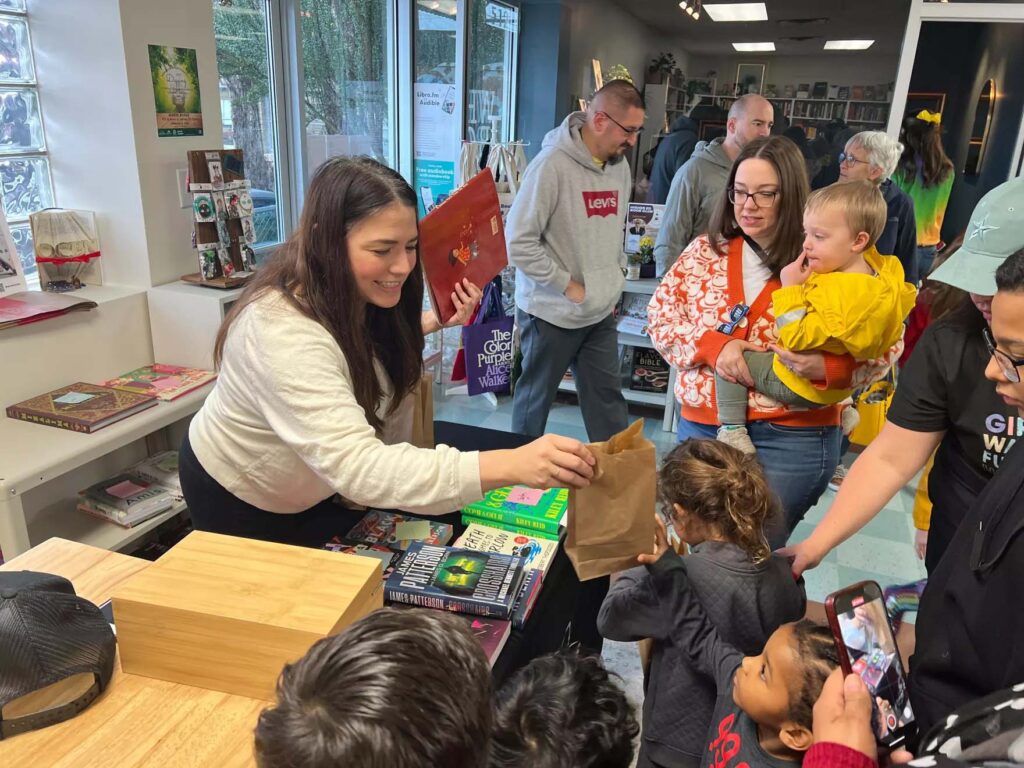
Claudia Vega intends to grow Dallas’ reading culture through Oak Cliff families.
Zara Amaechi / KERA
But for many families, buying books is considered a luxury.
“For a lot of people who have not had access, it’s a foreign concept that’s really hard for a lot of people to grasp,” Vega said.
The nonprofit created a book access program that’s helping get books into homes in historically marginalized communities. Through the program, the bookstore invites different groups to a workshop that teaches the benefits of book ownership and growing a reading culture within the home, and then provides a book voucher for the families to use in the store.
Rodolpho Zolezzi was browsing the store with his voucher on a recent Saturday morning. He’s lived in Dallas’ Oak Cliff neighborhood for about 10 years but is originally from Brownsville.
He never thought reading consistently was something he needed to prioritize since it was never normalized at home.
“With my parents, it wasn’t something that we did. My parents, they graduated high school, and that was pretty much it after that,” he said. “I didn’t grow up reading at all, so I want to give my child a different, like, upbringing with books and kind of have them engage in more work activities.”
The book voucher program helps guide families away from a generational cycle of illiteracy, Vega said. Research shows that having 80 books or more in a home correlates to better education and job attainment.
Zolezzi now sees reading as a new way of exploring with his 15-month-old son. Zolezzi doesn’t own books for himself but has started growing his son’s collection in hopes that it will be a habit he’ll one day pick up.
“Later on, once he gets into school, like high school and middle school or whatever,” he said, “I think that foundation is going to be very crucial for his future career.”
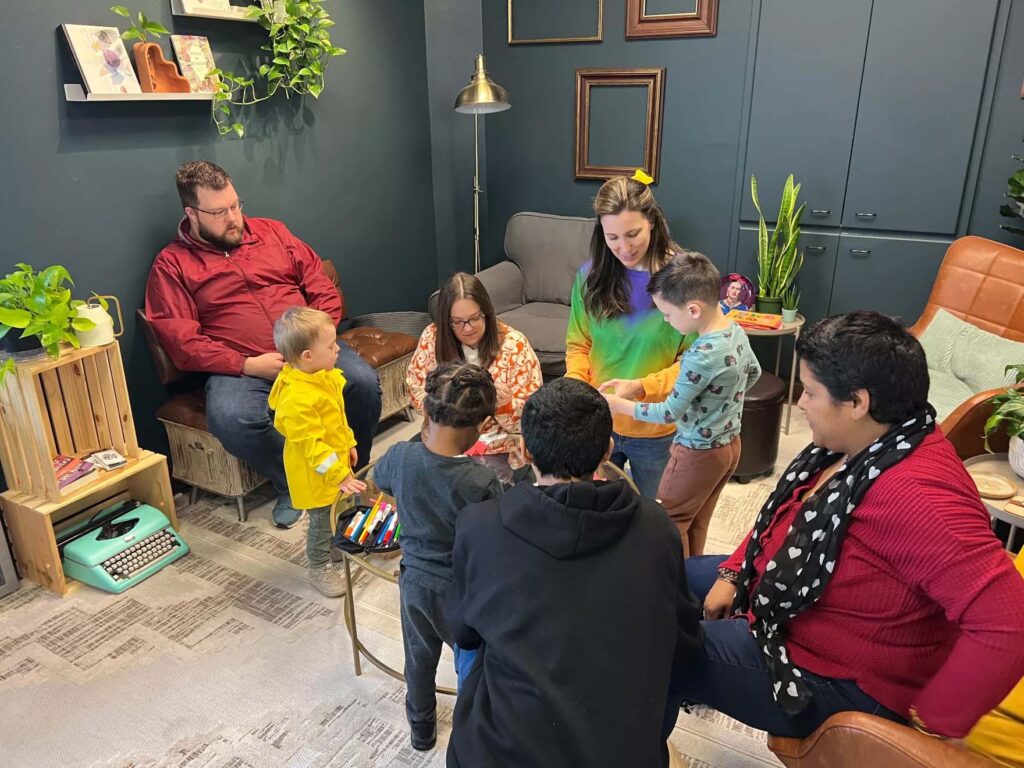
Families attend community story time at Whose Books every Saturday morning.
Zara Amaechi / KERA
Building community
Every Saturday morning, the store also hosts a community story time, part of ARCO’s positive reading program. Whose Books becomes a safe space for families from across the neighborhood to remind them that reading is not just a solo activity.
Some guests are active readers, and others simply enjoy the environment they’re welcomed into, Vega said.
Allison Tibbits is a regular attendee. She reads to her kids every night for 10 minutes and has noticed the growth her children have made after the family added books into their routine.
“If they see things in real life, they’ll say, ‘Hey, I like that in my book.’ Or, ‘Hey, did you see that?’” Tibbits said. “They can’t read yet, but you know, they’re constantly exposed to it.”
Vega said what she does at her bookstore is far from intervention work. She simply wants to watch a special relationship between Dallas and reading culture grow.
“If you are already a book lover, you know how beautiful that experience is to look on the shelves,” she said, “and find something that speaks to you and then to be able to take it home with you.”


